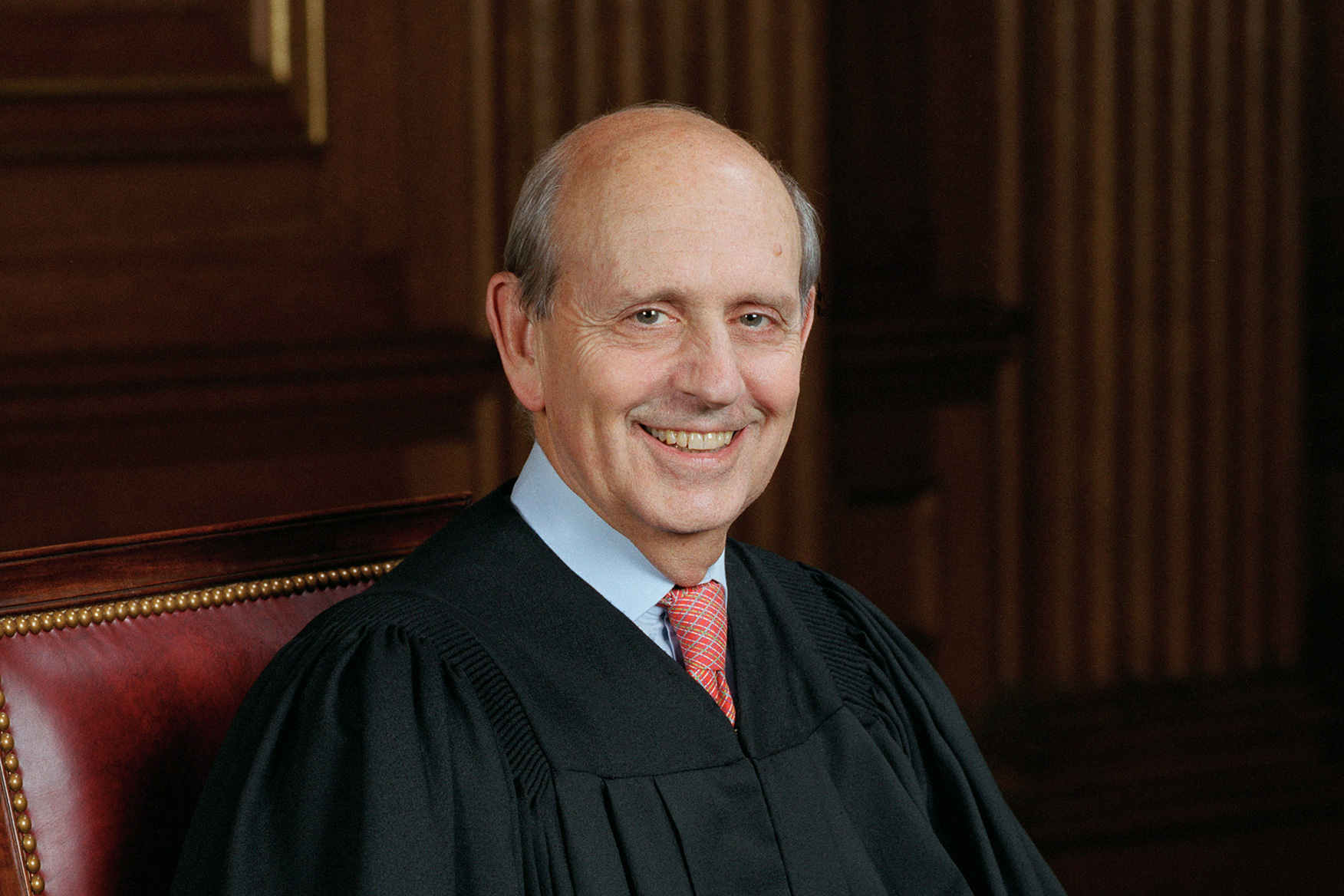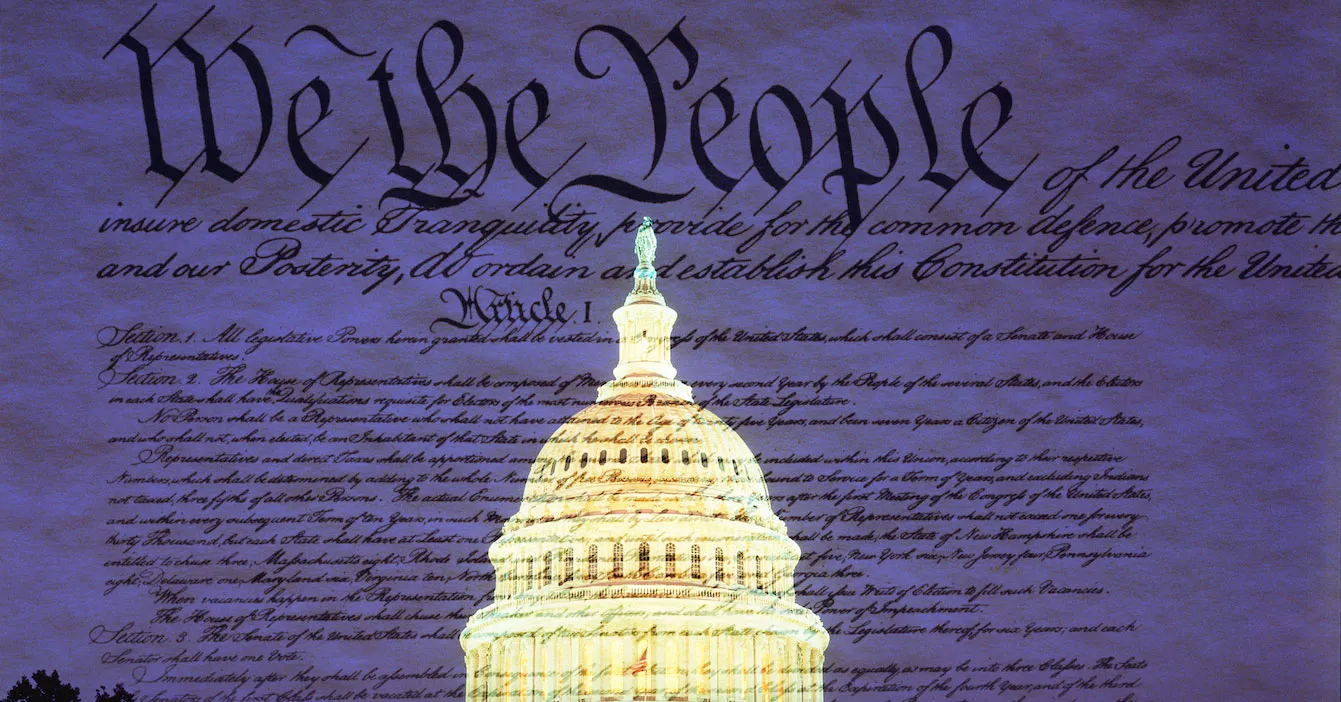For a brief window of time on Thursday afternoon, Stephen Breyer had the undivided attention of the president of the United States, a roomful of the nation’s most prominent reporters and an audience of untold millions on television and the web.
It was a chance he could have used to wax eloquent on a career that spanned the Army and all three branches of the U.S. government before he turned 40 as well as nearly 30 years on the Supreme Court before he retires later this year.
He didn’t.
Instead, the 83-year-old justice focused on what he tells students from elementary school to law school when they ask what he finds meaningful about this work.
It’s this: Watching from the bench as people across America – a country of 330 million people his mother described as comprising every race, every religion and “every point of view possible” – try to resolve their major differences under the law.
And if the students respond cycnically? “Go look at what happens in countries that don’t do that,” he quips.
In 200-plus years of American history, people have come to accept the U.S. Constitution, a booklet version of which Breyer carries with him on the job, “and they’ve come to accept the importance of a rule of law,” he says. “We have a country that is based on human rights, democracy and so forth.”
But it remains an experiment.
That was the judgment of George Washington, the general who led the colonial army during the American Revolution and became the first U.S. president as well as Abraham Lincoln, who as 16th president shepherded the young nation through a deadly conflict that threatened to end the union altogether.
Eighty-seven years earlier, Lincoln told the country after the pivotal battle of Gettysburg, Pa., in 1863, America’s founders had created a nation “conceived in liberty and dedicated to the proposition that all men are created equal. Now we are engaged in a great civil war testing whether that nation, or any nation so conceived and so dedicated, can long endure.”

That assessment is the reason Breyer’s wife, Joanna, paid their grandchildren to memorize the now-famous speech, and what he hopes students will take away from their conversation with him.
America is “an experiment that’s still going on,” he tells them.
Who will see whether it works?
Not just the present generation, “that next generation, and the one after that – my grandchildren and their children. They’ll determine whether the experiment still works,” Breyer says. “I’m pretty sure it will.”
It’s a note of striking optimism in a country divided by debates over abortion rights, gay rights, religious freedom and, not least, the fallout from a Jan. 6 attack on the Capitol by supporters of former President Donald Trump.
That assault delayed, but ultimately failed to prevent, Congress from certifying results of the 2020 election that Trump lost to current President Joseph Biden, who will now choose Breyer’s successor on the Supreme Court.
The selection itself is likely to be riven by partisan conflict, with Democrats who narrowly control the Senate smarting from political maneuvering by former GOP Majority Leader Mitch McConnell that allowed Trump to appoint three justices, tilting the nation’s highest court sharply to the right.
Biden’s selection can’t change the current power structure, but it would help liberal justices retain the influence they now have and make rebalancing the court easier for future Democratic presidents.
While the administration has offered few details about the selection process, Biden has pledged to work in good faith with members of both parties to appoint the first Black woman to the Supreme Court. He said Thursday he intends to choose his nominee by the end of February.
“In the end, I will nominate a historic candidate, someone who is worthy of Justice Breyer’s legacy,” he said.
Among the hallmarks of that legacy are an encyclopedic knowledge, a pragmatic approach to cases and a commitment to seeking consensus, according to Breyer's colleagues on the Supreme Court.
"He is the best possible colleague," said Justice Elena Kagan, who was appointed by former President Barack Obama, a Democrat. "He believes in making institutions work; to strengthen this one, he listens to other views with care and generosity, and does everything he can to find common ground. "
Members of the court's conservative wing concurred. "His deep knowledge of our law, its history, and our government is profound," said Justice Neil Gorsuch, Trump's first appointee to the court. "His good humor is legendary. I will very much miss his wisdom - and his wit."
Biden, who first met Breyer when the latter was a Congressional aide and Biden was a member of the Judiciary Committee, voted to confirm him to the U.S. Court of Appeals in 1980 and to the Supreme Court in 1994.
“I got to preside as Chairman of the Senate Judiciary Committee over his Supreme Court confirmation hearings,” Biden recalled. “He explained to us his faith that that our complex legal system has a single purpose: to help the people who make up our country.”
In the years since, Breyer has “written landmark opinions on topics ranging from reproductive rights to healthcare, to voting rights, to laws protecting our environment and the laws that protect our religious practices,” the president said. “His opinions are practical, sensible and nuanced. It reflects his belief that the job of a judge is not to lay down a rule, but to get it right.”


